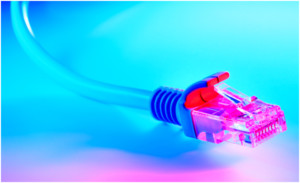 The internet has evolved from basic data transmission to a complex global network connecting billions of users worldwide. With quantum computing and communication, a new domain is emerging known as quantum internet. In this article, we will explore the fundamental difference between the classical and quantum internet.
The internet has evolved from basic data transmission to a complex global network connecting billions of users worldwide. With quantum computing and communication, a new domain is emerging known as quantum internet. In this article, we will explore the fundamental difference between the classical and quantum internet.
Units of Data
The classical internet processes data using bits (0 or 1) to transmit information. On the other hand, the quantum internet uses qubits to encode information in two quantum states: electron spin and photon polarization.
Quantum networks allow changes to individual quantum bits without affecting the rest of the network, unlike the classical internet, where changes affect the entire packet. As a result, the quantum internet differs from classical binary-based methods in that it transfers data and processes it using quantum states instead.
Mode of Operations
The classical internet sends data between unique IP addresses using protocols like TCP/IP for reliable delivery, routing, and security. In contrast, the quantum internet lacks a defined protocol suite.
In quantum networking, qubits are exchanged across networks using quantum mechanics and protocols, setting up the possibility of quantum communication developments. Moreover, you may use the Speed Test to compare classical internet data transmission with qubit exchange and quantum mechanics.
Security
Classical internet security uses protocols like IPsec, SSL, and VPN for secure connections. The quantum internet uses quantum key distribution (QKD) to share secure, irreplicable keys between devices. In the quantum internet, measuring the linked qubits collapses the wave function, making hacking difficult. Quantum cryptographic protocols improve security on the quantum internet, replacing classical encryption with quantum-resistant techniques.
Requirements
Quantum networks require complex technologies such as quantum repeaters and routers, which are still in the early phases of development and face significant implementation challenges. Additionally, the classical internet effectively meets the demands of everyday communication and data transfer.
There is potential for quantum internet in the future, but its implementation will depend on overcoming technological limitations and seamlessly integrating with other systems. Furthermore, when working properly, you can test the performance of both classical and quantum internet technologies by using the Shell Energy Internet Speed Test.
Reliability
Classical internet reliability faces challenges with data packet transfer due to possible packet loss resulting from congestion or hardware issues. This affects transmission speed and latency. Similarly, quantum decoding may cause qubit loss, which is similar to packet loss, on the quantum internet. This problem occurs when quantum components interact with the environment, resulting in photon loss.


